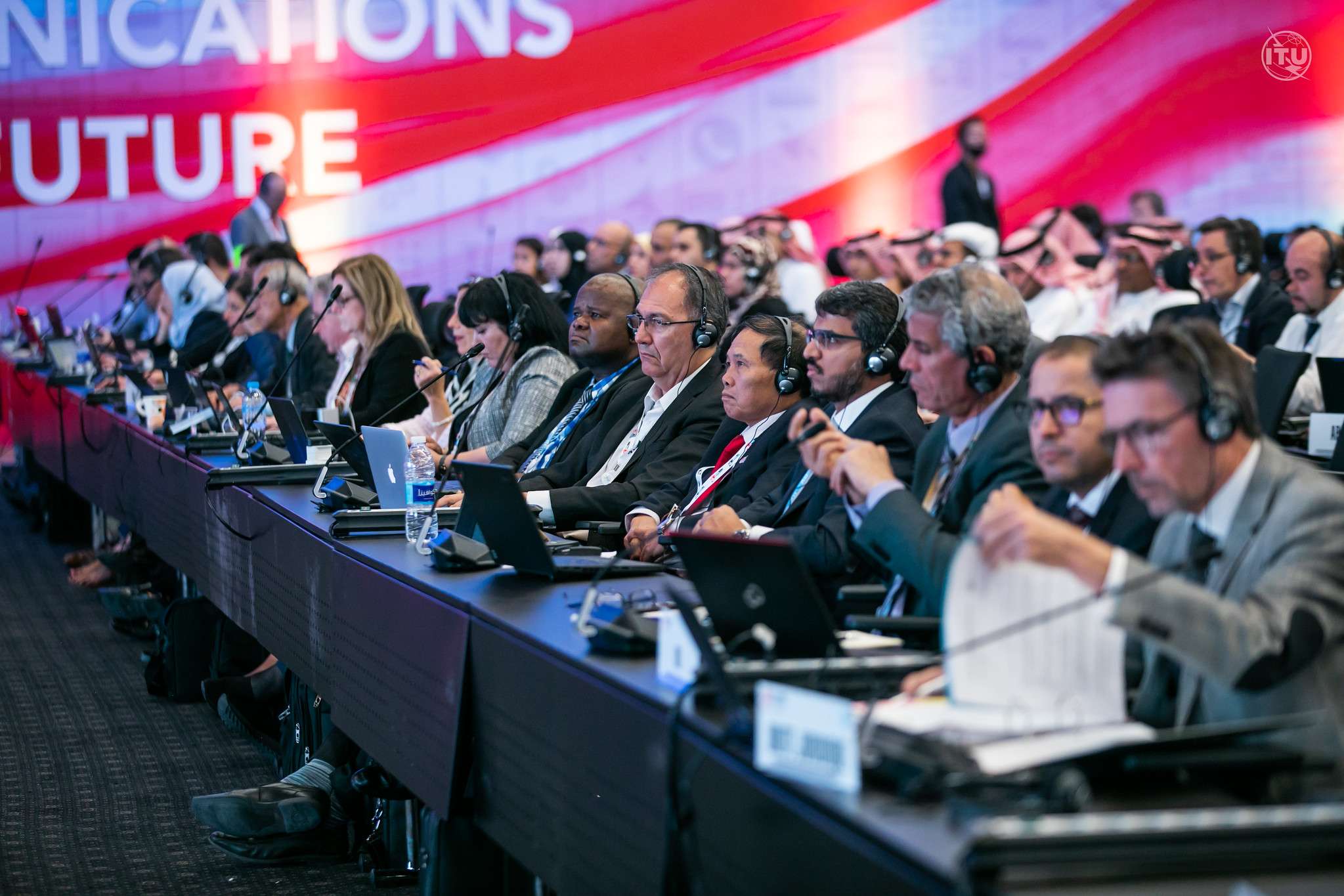Operators of satellites in non-geostationary orbit (NGSO) could be forced to turn off beams when flying over countries that have not authorized them, do more to disable bootleg dishes in these territories, or a mix of both, depending on who you ask about new global rules in the works.
Approval to study ways for cracking down on unauthorized NGSO services was one of the most surprising outcomes of the recent 2023 World Radiocommunication Conference (WRC-23) in Dubai, a quadrennial event for updating radio wave regulations.
Depending on the results of these studies, the measures could be put up for approval as soon as 2027, when the International Telecommunication Union (ITU), an arm of the United Nations, will bring countries together again to update global spectrum regulation.
According to John Janka, global chief of government affairs and regulatory officer at geostationary orbit (GSO) broadband operator Viasat, administrations cleared for consideration an extension to NGSOs of a “satellite service area†limitation already in place for certain geostationary transmissions such as TV broadcasts.
When a broadcast satellite is being developed, international regulations require every technical effort to be made to prevent its radio waves from spilling into countries that have not approved the service.
NGSO satellites currently do not have a similar limitation, making it possible for users with a compatible antenna to connect to them in a country that has not given their operator a license.
Others say regulatory text approved at WRC-23 is strictly confined to stopping unauthorized antennas from linking up with NGSO satellites. Based on the operative portion of the “Com6/6†agenda item that came out of the conference, EchoStar Corp senior vice president of regulatory affairs Jennifer Manner said her interpretation is it “is focused on requiring authorization to transmit from a country; not to turn off when flying over.â€
EchoStar provides broadband and broadcast services from GSO and plans to deploy a non-terrestrial network this year for connectivity from low Earth orbit.
According to sources who attended WRC-23 but did not want to be named, the crackdown is mainly targeted at SpaceX’s Starlink, the world’s largest NGSO broadband constellation currently in operation.
Domestic rules already require authorizations to be in place before an NGSO operator’s user terminal links up to a satellite, but some countries say this is not enough to prevent services, and one WRC-23 delegate said “Russia and others were so mad at Starlink they want rules at the ITU level.â€
There was an original proposal to stop satellites from beaming radio waves into unauthorized countries that “would have been much harder to address,†this person added, but the U.S. and other countries negotiated a focus on preventing antennas within these territories from communicating with satellites instead.
Still, Janka said it is too early to say where studies for new NGSO rules will end up, adding that the Com6/6 agenda item “is broad enough to cover all NGSO operations,†including broadband and narrowband, and is spectrum-band and service agnostic.
SpaceX did not respond to a request for comment.
Ghana issued a warning to its citizens Dec. 7 — while WRC-23 negotiations were taking place — against using broadband services “purported to be from Starlink†following reports of equipment being sold and operated in the country.
SpaceX’s online availability map shows it expects to launch Starlink commercially in Ghana in the third quarter of 2024 after getting a permit.
Senegal, Zimbabwe, and South Africa have recently issued similar warnings to the public and Starlink resellers operating without permission.
Unauthorized Starlink services were “a pretty widespread concern†among countries attending WRC-23 seeking more protections to safeguard national interests, the conference participant added. Iran also voiced concerns, along with countries across the Americas and Caribbean.
A spokesperson for Eutelsat OneWeb, the world’s second-largest broadband NGSO constellation, said it only distributes services through partnerships with authorized local entities, “who also understand the local requirements and together we ensure we comply with national regulations before starting operations.â€
Multi-orbit operator SES also heavily relies on enterprise and government partnerships to provide NGSO services.
Anna Marklund, director of spectrum management and development at SES, said the operator “condemns unauthorized use of terminals,†and intends to actively participate in studies to clarify regulatory countermeasures.
This article first appeared in the January 2024 issue of SpaceNews magazine.
Related
Read the original article here



